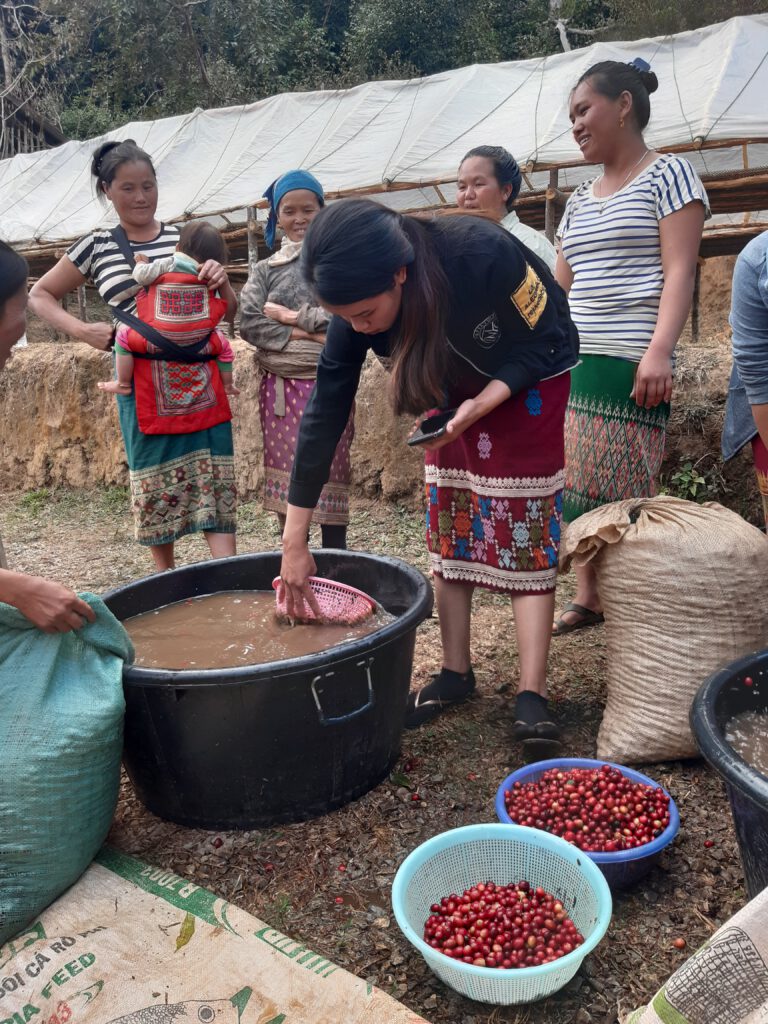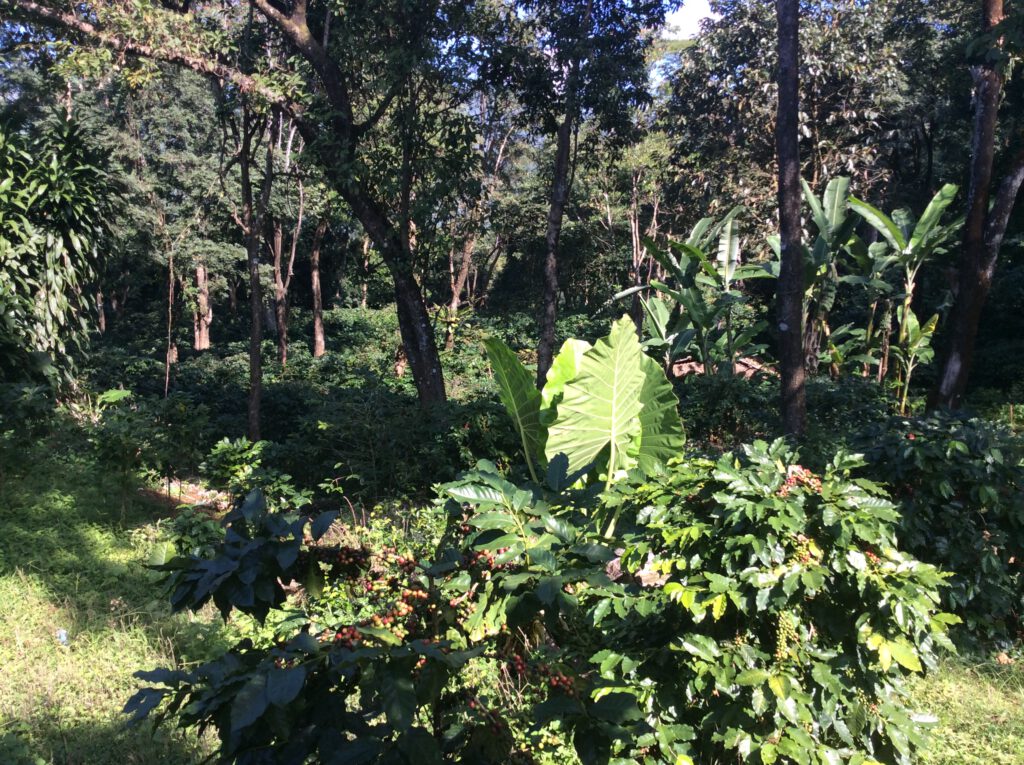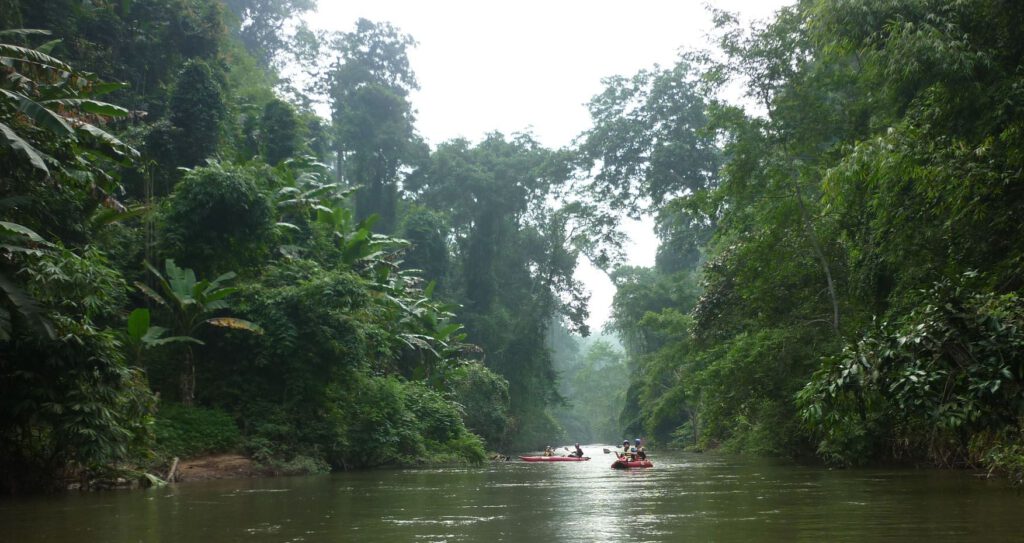Viengphouka Landscape Conservation Project
Viengphouka Landscape Conservation Project
The Viengphouka Landscape Conservation Project, initiated in collaboration with the United Nations Development Program’s Global Environment Facility Small Grants Programme (GEF SGP), addresses the pressing challenges of unsustainable agricultural practices, community empowerment, reforestation, and ecotourism in Vieng Phoukha District, Luang Namtha Province, northern Laos.

Background
Upland communities in Vieng Phoukha District rely heavily on agriculture and non-timber forest products (NTFPs) for sustenance. However, traditional farming methods like slash-and-burn agriculture and mono-crop cultivation have led to significant deforestation, biodiversity loss, and ecosystem degradation. Additionally, the influx of outside investment in plantation agriculture, particularly rubber cultivation, poses further threats to both the environment and local livelihoods.
Project Objectives

Promotion of Sustainable Agriculture
The project aims to introduce sustainable agricultural practices to upland communities, focusing on soil preservation, organic farming, and crop diversification.

Community Empowerment
Through capacity-building initiatives and training programs, the project seeks to empower local farmers, particularly women and indigenous groups, to adopt sustainable agricultural techniques and take ownership of their livelihoods.

Reforestation
Reforestation efforts will be undertaken to restore degraded landscapes, mitigate deforestation, and preserve biodiversity. Tree planting activities will contribute to ecosystem restoration and the protection of watersheds.

Ecotourism Development
The project will explore opportunities for community-based ecotourism, leveraging the region's natural beauty and cultural heritage to generate sustainable income for local communities. This will involve the development of ecotourism models that promote environmental conservation and cultural preservation.
Implementation Plan
Over a 24-month period, the project will implement various activities, including training workshops on sustainable agriculture, reforestation campaigns, community-led ecotourism initiatives, and capacity-building programs for local stakeholders. Emphasis will be placed on participatory decision-making processes and inclusive engagement with indigenous communities.
Results
Promotion of Sustainable Agriculture
Through intensive training workshops and capacity-building initiatives, 16 households adopted sustainable agricultural practices. These included soil preservation techniques, organic farming methods, and crop diversification strategies. As a result, agricultural productivity increased, and farmers reduced their reliance on mono-crop cultivation, contributing to enhanced food security and income generation. Ultimately, this initiative led to the rejuvenation of 12 hectares of previously degraded land, now transformed into thriving agroforestry coffee plantations. These plantations not only revitalized the original forest cover but also integrated fruit and nut trees, enriching the landscape. This ultimately generates income but also aids in climate mitigation efforts.


Community Empowerment
The project prioritized the empowerment of marginalized groups, particularly women and indigenous communities. By providing access to resources, knowledge, and skills, community members took ownership of their livelihoods and actively participated in decision-making processes related to agricultural management. Women, in particular, played a pivotal role in implementing sustainable farming techniques and spearheading community-led initiatives.
Reforestation
Our reforestation strategy centered on providing local communities with economic incentives while fostering environmental regeneration. By introducing coffee as the main cash crop alongside fruit and nut trees, ideally suited for agroforestry settings, we aimed to revitalize degraded landscapes and encourage forest preservation.
Through targeted planting efforts, we established a diverse ecosystem, focusing on indigenous species to enhance biodiversity and ecosystem resilience. Approximately 4000 indigenous banana trees were strategically planted to provide immediate shade for 36,000 coffee trees, facilitating their growth and kickstarting natural regeneration plus providing a more immediate income source for the participating households.
Furthermore, we enriched the restored forest by introducing 2000 commercially valuable fruit and nut trees, diversifying the landscape and creating sustainable income opportunities for local residents. By aligning economic incentives with environmental conservation, we fostered a mutually beneficial relationship between communities and their natural surroundings, ensuring the long-term integrity of northern Laos' forests.


Ecotourism Development
The project successfully identified and capitalized on ecotourism opportunities within the region. By leveraging the area's natural beauty and cultural heritage, community-based ecotourism initiatives were established, providing sustainable income sources for local residents. These initiatives not only contributed to economic development but also raised awareness about environmental conservation and cultural preservation among visitors and community members alike.
Impact
Enhanced Resilience
Local communities have exhibited increased resilience to climate change and environmental degradation by adopting sustainable agricultural practices, including the cultivation of coffee, fruit, and nut trees. These practices have not only restored degraded ecosystems but also provided economic incentives for ecosystem restoration.
Economic Empowerment
The project's integration of coffee, fruit, and nut tree cultivation into agroforestry systems has created new economic opportunities for rural communities. By incentivizing ecosystem restoration through these lucrative crops, communities have reduced reliance on unsustainable practices while diversifying their income sources.
Environmental Conservation
Reforestation efforts, driven by the cultivation of coffee, fruit, and nut trees, have played a pivotal role in environmental conservation. These initiatives have restored degraded landscapes, preserved biodiversity, and protected vital ecosystem services such as watershed management and soil fertility.
